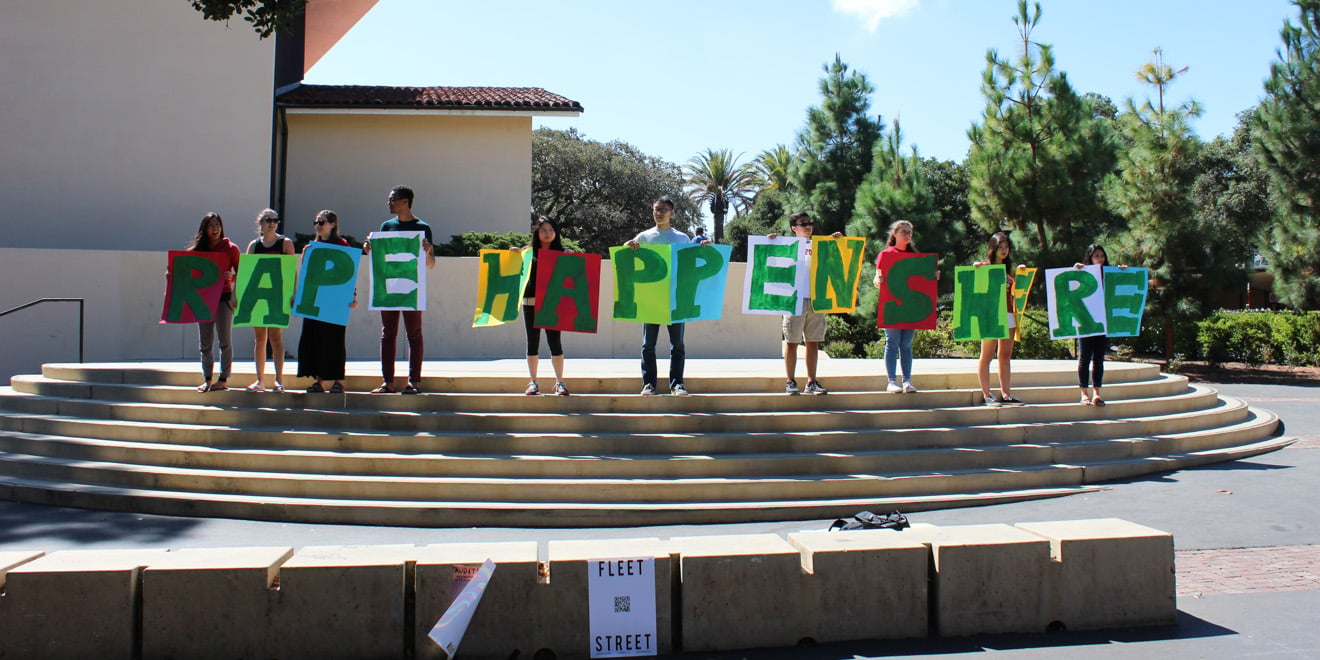The male student accused of sexually assaulting Leah Francis ’14 two years ago has filed two separate suits against the University, claiming gender discrimination under Title IX during the review process that led to his suspension. The student, who has elected to remain unnamed, is filing the case as John Doe.
The assault of Francis was the first sexual assault case in three years at Stanford to lead to disciplinary action when it occurred in 2014.
This case was the center point of the “Stand with Leah” movement, which demanded that Stanford change its sexual assault policies and provide more support for victims of assault, as well as harsher punishments for those found guilty of sexual assault.
Earlier, the U.S. Department of Education’s Office for Civil Rights (OCR) launched an investigation into how Stanford handled the Francis case.
Despite the investigation by Stanford, the district attorney in Juneau, Alaska, the jurisdiction where the assault was committed, determined there was insufficient evidence to press criminal charges.
The suit filed in Santa Clara Superior Court asks the University to provide a writ forcing Stanford to rescind the findings against the accused student.
The Northern District Court of California ruled on May 5 that Doe’s case can proceed anonymously to protect Doe from the adverse effects that might occur with the exposure of his name.
Doe is pursuing damages in the federal case on the basis that he was unfairly discriminated against because he was a male student and the University wished to appear tough on sexual assault.
Doe’s suit alleges a multitude of problems with the University’s handling of the case and how it reached its conclusions. These include issues during the review process and during the appeals process, when Vice Provost of Student Affairs Greg Boardman’s office both decided against Doe and increased the sanctions against him.
Doe’s case alleges that Stanford lacked jurisdiction because the incident occurred away from Stanford’s campus and Doe and Francis were not involved in any Stanford-affiliated activities when the assault occurred.
The main flaw that Doe found with Stanford’s handling of the situation was a lack of basic fairness throughout the process.
“We believe that… he [Doe] was not provided with a fair opportunity to defend himself,” said James Quadra, Doe’s attorney.
Quadra added, “The conduct of Stanford against him was biased and designed to present him with little chance of a fair hearing and appeal.”
Doe alleges that the review process was not impartial and that his rights to a fair hearing were impinged upon during the process.
Doe lists several allegations, including the defense not being allowed to cross-examine Francis during the original hearings. Additionally, he asserts that the counselor Stanford appointed him did not advise him to seek legal representation, despite the fact that Francis was represented by a professor from the law school. Lastly, the review panel allegedly failed to question Francis’ credibility despite inconsistencies in her account of the events.
Additionally, Doe alleged that the impartial investigator chosen by Stanford for the case improperly redacted statements from Francis and Doe. This caused the panel to make a decision without full knowledge of the facts of the case.
Doe’s filing also took issue with the appeals process which allowed Boardman great latitude in his determination. Quadra explains some of the issues his client found.
“They [Stanford’s policies] do not spell out how to do an appeal and allow the appellate officer to evaluate fairly.” He added,“The rule was interpreted to allow the Vice Provost [Boardman] to make his own… discipline.”
Doe alleges that Boardman went outside of the scope of the appeal during his evaluation, and conducted his own investigation to find facts that could be used to support the panel’s findings against Doe.
University spokeswoman Lisa Lapin said in a statement to the Daily, “It is disappointing that a student has filed litigation against Stanford, but we believe this matter was handled appropriately and we are prepared to defend the process.”
As universities across the country have stepped up action against students accused of sexual assault in recent years, cases like Doe’s have become more common.
Last year in a situation similar to Doe’s, a court ruled that UC San Diego had failed to provide a fair trial in the handling of a sexual misconduct case.
Concerns about unfairness to the accused exist across the country. Two years ago, Harvard Law School implemented its own policy for handling sexual misconduct cases. This was in response to worries over bias in Harvard University’s policy.
According to Quadra, Doe has decided to stand up for his rights.
“He’s decided to do his best not only for himself, but so the school is more fair in the future with its handling of these cases.”
Contact Regan Pecjak at reganp ‘at’ stanford.edu.
